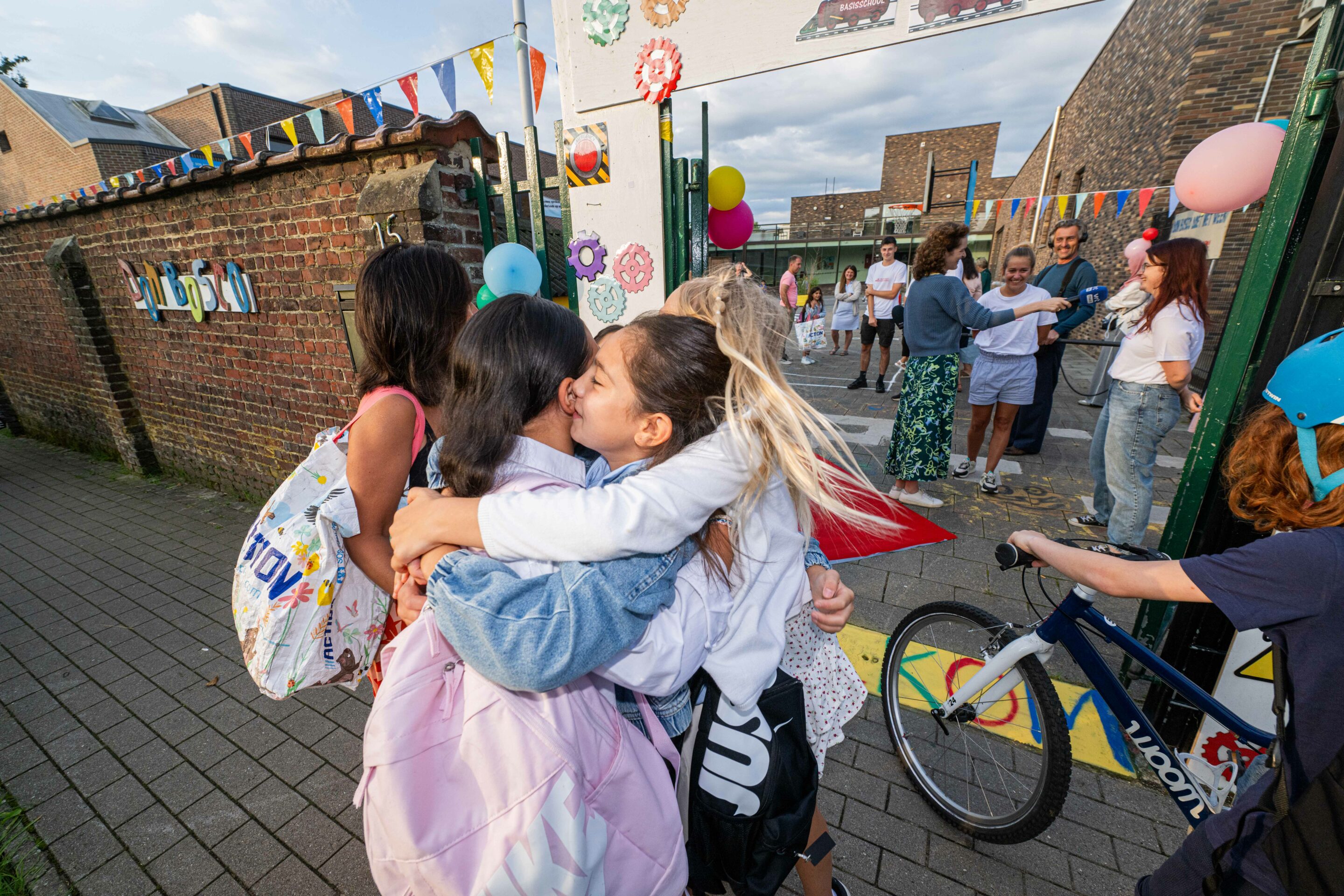My Belgian partner and I moved from sunny California to Brussels to raise our daughter. We wanted her to have a multi-lingual education and a solid foundation for her future academic success, something that is not assured in the US.
I did my research and thought we were completely prepared for the educational experience our family would enjoy. We had the added bonus of my partner having first-hand knowledge of growing up Belgian. This is our family’s experiences of the good, the bad, and the bizarre in the Belgian education system.
The good
From 14 months old, our little one attended crèche in Dutch. It was a dream! The on-site cook provided fresh soup and homemade food every day. Teachers were incredible and patient and the facility was beautiful and comfortable.
We were particularly grateful for the group potty training starting at about 18 months which made the life of two working parents so much easier. The fees were based on household income and even the highest bracket cost was quite reasonable.
I still think fondly about the seamless and thoughtful transitions from crèche to kleuter school, then up to grade school. The focus was on minimizing anxiety about the changes as the kids grew and helped them feel excited about growing up.
Government-funded education starts in kindergarten and public education in Flanders is considered excellent. My child receives a top-notch education with great focus on maths, reading, writing, and problem-solving. Classes are small, usually capped at around 22 students, with physical education classes a few times a week and even including swimming lessons.
Before and after-school care is one of the best bargains for working parents. It is offered for an hour before school and until 18:00 after school for all students at a rate of €1 per hour! They even do fun events and crafts on Wednesdays, when school ends early.
The bad
Our positive experience with the Belgian school system could be an article on its own. But it is only fair to also identify some of the less-than-ideal elements that our family has faced.
The first and most frustrating element for a parent who is not a native Dutch speaker is that every communication with and at school MUST be done in Dutch. No help or services will be available in any other language, regardless of situation. Expats need to secure translation assistance for every teacher conference, information night, etc., or rely on translation software to navigate their child’s educational process.
It is not the school’s intent to be unhelpful, but most provinces and cities in Flanders have strict rules about upholding the Dutch language. The lack of flexibility on this matter is at times frustrating. Fortunately my partner is a native Dutch speaker and I am able to bring him. We have found, however, that teachers and admin speak quickly and in complex forms. As a beginning/mid-level Dutch learner I simply can’t keep up.
For a country with three national languages, I had envisioned a multi-lingual curriculum early on in my daughter’s education. Instead, schools wait until the fifth school year (10-11 year olds) before even starting a second language. Other comparable schools around the world start second language classes much earlier and with greater success for fluency. As a result, many parents enrol kids in immersive summer schools or after-school courses to give them a head start.
The bizarre
No research prepared me for some of the simply bizarre aspects of Belgian schools. For starters, as an American it is unimaginable to have required religious study hours in a public school. If your family doesn’t conform to one of the five religions offered, the only choice is to place them in an "ethics" course.
Bizarrely, religion and ethics are GRADED courses, with actual EXAMS about GOD. As a generally non-religious observant country, this is a strange and invasive practice.
It is also very common for kids in elementary school to be held back a grade, or two, or three, or MORE. If a student is not keeping up with language skills or falls behind in test scores, the most common solution is to simply have them retake the entire year of study.
Unfortunately, the common denominator of kids kept behind is parents who are not Dutch speakers or students with any form of disability. Children who come to the school without knowing Dutch are provided some additional assistance during the day and there is a program to provide homework help after school.
But we have had a large number of classmates transfer schools because there are not sufficient resources for students and those with ADHD or ASD have a severe lack of support. For our daughter, things became difficult in grade two, with some kids in class that were two or three years older. The sophistication and social capability differences between a 6-year-old and 9-year-olds that are held back repeatedly are huge.
We had challenges for our daughter’s normal social growth and despite best efforts, bullying and manipulation were unavoidable. I know some children need an extra year to mature, but the frequency and common practice of holding back children instead of giving them extra help is just, well, weird.
If I have learned anything from this experience, it’s that even with preparation no one can really foresee the ups and downs of their child's education – especially in a country as multilingual as Belgium.

